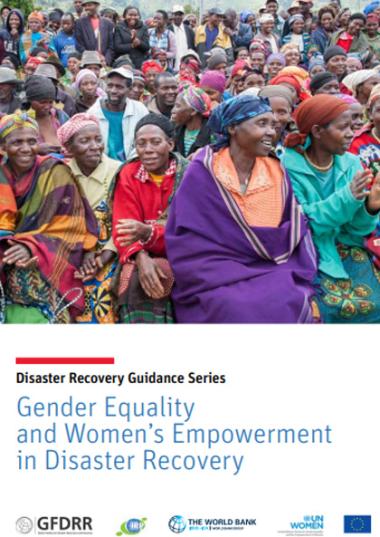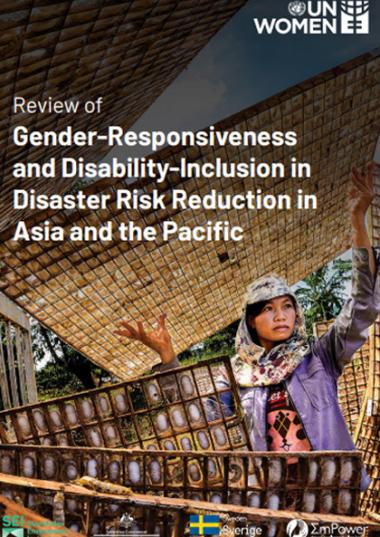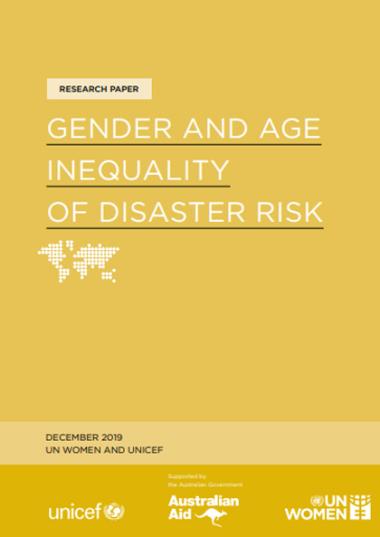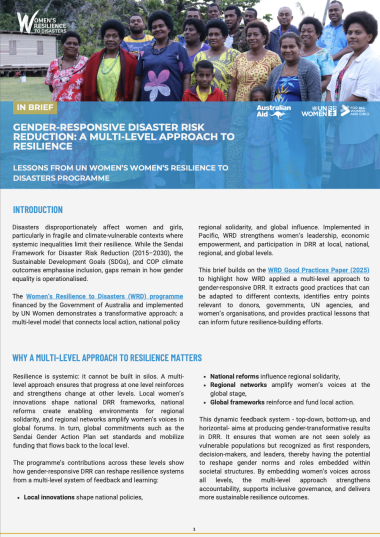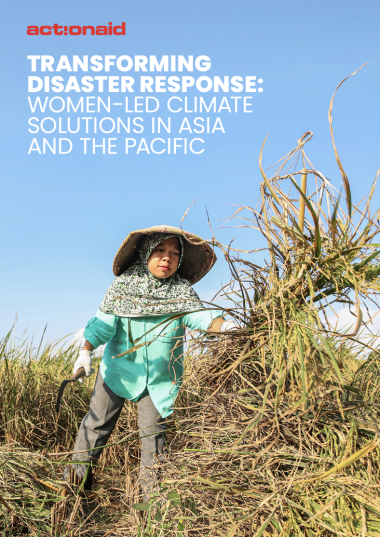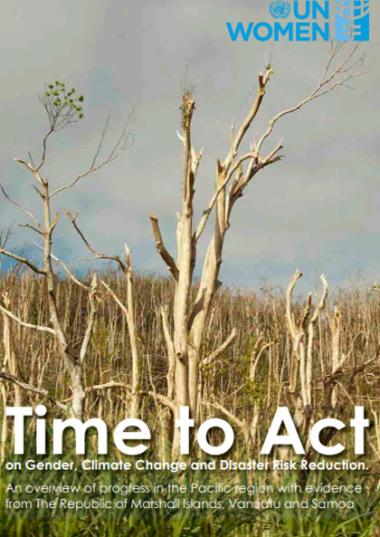
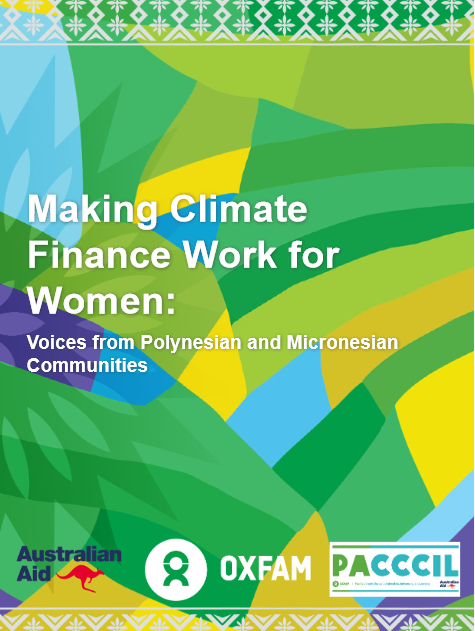
Making climate finance work for women: voices from Polynesian and Micronesian communities
October 2020
Climate change is a lived reality of women, men, girls and boys living in the Pacific. The impacts of climate change disproportionately impact Pacific women and girls in all their diversity1, particularly those that live in remote communities away from urban centres or those who live in impoverished areas in our growing towns and cities. Despite the critical role women play in Pacific communities, gender inequality persists. Climate change exacerbates these inequalities making Pacific women even more vulnerable to climate change impacts. This is another precarious ‘climate’ situation that compounds the challenges already confronting Pacific women. Ironically, gender inequality often provides the justification for Pacific governments, development partners and civil societies to access more development finance. Increasingly this includes financing climate change initiatives. Climate change is a critical development priority for the region and multilateral sources, such as the Green Climate Fund, as well as bilateral agencies are committing significant amounts of climate finance for the Pacific. However, very little attention has been paid to assessing whether climate finance addresses gender inequality, despite the increasing vulnerability of women and girls.
Using a talanoa approach to draw out the ‘lived realities' of women at the community level, this research sought to examine how women perceive climate finance is impacting their lives and livelihoods.
The research was carried out with women in Funafuti, Tuvalu and Chuuk, the Federated States of Micronesia (FSM). The social accountability framework, founded on the pillars of transparency, ownership, responsiveness, participation and equity, underpins this study approach. While a definitive answer to the question of whether climate finance is addressing gender inequality (working for women) in Pacific communities was not possible from only one study, it was clear that a huge gap exists between understanding the impact of climate finance at a community level and the climate finance policy discourse at regional and national levels. This gap highlights the need to continue to develop inclusive and equitable approaches to climate finance in Pacific island countries with explicit attention to enduring inequalities such as gender inequality. This will contribute to ensuring everybody is truly in ‘the same canoe’ and that no one is left behind when it comes to tackling climate change.
